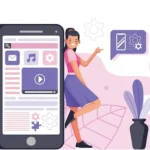Coding is the key to opening up a world of opportunities in the modern digital era. Learning how to code is a valuable skill, whether your goal is to become a software developer, build your own website or mobile app, or simply understand the language of technology. We will take you on a tour of the fascinating world of coding in this in-depth guide, providing you with information, advice, and resources to help you get started and succeed there. This article is your guide to mastering this crucial skill because it takes a step-by-step approach and a commitment to making coding accessible to everyone.
Why Should I Learn Coding?
Let’s examine the “why” of learning to code before we get into the “how.” Why should you spend the time and energy learning this skill? Here are some strong arguments:
- Career Opportunities: The tech sector relies heavily on coding, and the demand for qualified programmers is constantly rising. Numerous lucrative and rewarding career opportunities can be accessed by learning to code.
- Innovation and Creativity: Coding enables you to materialize your innovative ideas. Coding is your innovation tool, whether you want to design a website, a mobile app, or digital artwork.
- Problem-Solving Capabilities: Coding requires you to use logic and solve complex issues. These problem-solving abilities are useful in many aspects of life, not just programming.
- Empowerment: Being aware of how software and technology operate gives you the power to manage your online existence. You can improve productivity by automating tasks and customizing software.
- Global Community: Learning to code gives you access to an international network of programmers, artists, and collaborators. You can interact with people who share your interests, gain knowledge from others, and participate in open-source projects.
Let’s look at how to start your learning journey now that you are aware of the importance of coding.
Choosing a Coding Path
There are many different programming languages and domains to explore in the vast field of coding. You must choose the coding pathway that best fits your interests and objectives before you can move forward.
Here are some well-liked coding areas to take into account:
- Web development: Languages like HTML, CSS, and JavaScript are necessary if you’re interested in building websites and web applications. From front-end design to back-end server development, web development offers a wide variety of opportunities.
- Mobile App Development: Developing mobile apps for the iOS and Android platforms is a highly sought-after skill. You will need to learn Swift or Objective-C for iOS and Java or Kotlin for Android.
- Data Science and Machine Learning: While machine learning focuses on developing intelligent algorithms, data science analyzes data to derive insights from it. Due to its adaptability and extensive library, Python is a popular choice for both fields.
- Game Development: If you’re passionate about gaming, you might want to look into game development using C#, C++, or Python with game engines like Unity or Unreal Engine.
- Backend Development: Backend developers work on databases, APIs, and server-side logic. Python, Ruby, Java, and Node.js are popular languages for backend development (JavaScript).
- Blockchain Development: The blockchain sector is advancing quickly. Learn languages like Solidity for Ethereum or Rust for Polkadot if you’re interested in decentralized applications and cryptocurrencies.
- Artificial intelligence and robotics: Developing AI models and robots necessitates proficiency in specialized libraries and frameworks as well as languages like Python, C++, and Java.
- Cybersecurity: As threats in this area keep growing, there is a high demand for experts. You’ll need to learn specialized security tools and techniques, as well as languages like Python.
Once you’ve determined your area of interest, you can begin your coding career in that particular field. Keep in mind that learning one programming language often makes learning others later on simpler.
Also Read: The Crucial Role of Coding
Learning Techniques for Success
Both exciting and difficult things can come with learning to code. Here are some tips to help you succeed in your programming endeavors:
- Establish Specific Goals: Specify your coding objectives. Are you learning to code for a specific project, a career change, or personal development? You’ll remain motivated if your goals are clear.
- Pick the Correct Language: Decide on a programming language that supports your objectives. If you’re new to coding, start out with beginner-friendly languages like Python or JavaScript.
- Online Courses and Tutorials: Numerous online platforms provide coding courses and tutorials, frequently including interactive coding exercises and projects. Codecademy, Coursera, edX, and Udemy are a few well-liked alternatives.
- Books and Documentation: Don’t undervalue the importance of coding manuals and official paperwork. These sources offer in-depth justifications and illustrations.
- Practice, Practice, Practice: Coding is a skill that gets better with use. Regularly push yourself with coding projects and exercises. Websites like GitHub, HackerRank, and LeetCode can be helpful resources.
- Seek Help and Collaboration: If you find yourself in a bind, don’t be afraid to ask for assistance. Asking questions and learning from seasoned developers can be done in online forums like Stack Overflow and the programming communities on Reddit.
- Projects and Portfolio: Create practical projects to put your skills to use. Make a portfolio of your work to show prospective employers or clients.
- Join Coding Communities: Participate in coding forums and communities to network with other students and professionals. Networking can result in insightful connections and productive partnerships.
- Keep Up to Date: Technology changes quickly, so keep abreast of the newest styles, dialects, and resources in your field.
- Persistence: Coding can be difficult, and you may run into obstacles. Remain tenacious and see obstacles as chances to improve.
Resources for Education
Here are some suggested resources and programming languages for various domains to get you started on your coding journey:
- Languages used in web development include HTML, CSS, and JavaScript.
Web development resources include freeCodeCamp, Mozilla Developer Network (MDN), and Codecademy.
- Swift (iOS), and Kotlin are the languages used for developing mobile apps (Android)
Resources: Apple’s Swift documentation, the Android Developer documentation, and the Android Developer course at Udacity Nanodegree
- Python is a language used for data science and machine learning.
Resources include Kaggle, the official Python documentation, and Andrew Ng‘s Machine Learning course on Coursera.
- C#, C++, and Python are the languages used for game development (with Unity or Unreal Engine)
Resources: GameDev.net, the Unreal Engine documentation, and Unity Learn
- Python, Ruby, Java, and Node.js are the languages used for backend development.
Resources: Django (Python), Ruby on Rails (Ruby), Spring (Java), and Node.js documentation
- Rust and Solidity (Ethereum) are two languages used in blockchain development (Polkadot)
Resources: Polkadot’s documentation and Ethereum’s Solidity documentation Binance College
- Python, C++, and Java are among the languages used in artificial intelligence and robotics.
Resources TensorFlow (Python), ROS (Robot Operating System), OpenAI
- Python is a language used in cyber security.
Resources: Hacker101, Metasploit, OWASP
Conclusion
The journey of learning how to code can lead to countless opportunities and career paths. Coding is a valuable skill that gives you the ability to shape the digital world, whether you’re motivated by a love of technology, a desire to invent, or the need for new skills in the job market.
By deciding on your coding path, establishing specific objectives, and making use of the abundance of online communities and resources, you can start your coding journey right away. Accept the difficulties, persevere, and keep in mind that each line of code you write moves you one step closer to coding excellence.
Remember that learning to code is a lifelong learning adventure, regardless of where you start or the domain you select. Enjoy the process and let your knowledge of coding open up new possibilities for innovation, creativity, and problem-solving.
FAQs
Can I teach myself to code?
Yes, you can teach yourself to code. Many resources, online courses, YouTube, and books are available for self-learning, making it accessible to anyone motivated to learn.
How to learn coding in 30 days?
Learning coding in 30 days requires intensive daily practice, focused on a specific language or project. Choose a beginner-friendly language, follow structured tutorials, and immerse yourself in coding challenges.
Can I learn coding in 2 months?
Learning coding in 2 months is possible with dedication and a structured approach. Begin with the fundamentals, practice consistently, and work on projects to solidify your skills.
Which code to learn first?
You can start with a beginner-friendly language like Python or JavaScript. They are versatile, have vast communities, and are great for learning the basics of coding.
Should I learn C or C++?
The choice between C and C++ depends on your goals. C is simpler and often used for system programming, while C++ adds more features and is used for software development, including game development.
Should I learn Python or Java?
Decide between Python and Java based on your objectives. Python is beginner-friendly and popular for web development and data science. Java is known for its use in Android app development and large-scale enterprise applications. Choose the one that aligns with your interests and goals.
| Read Next: Tips for Writing Clean React Code |






